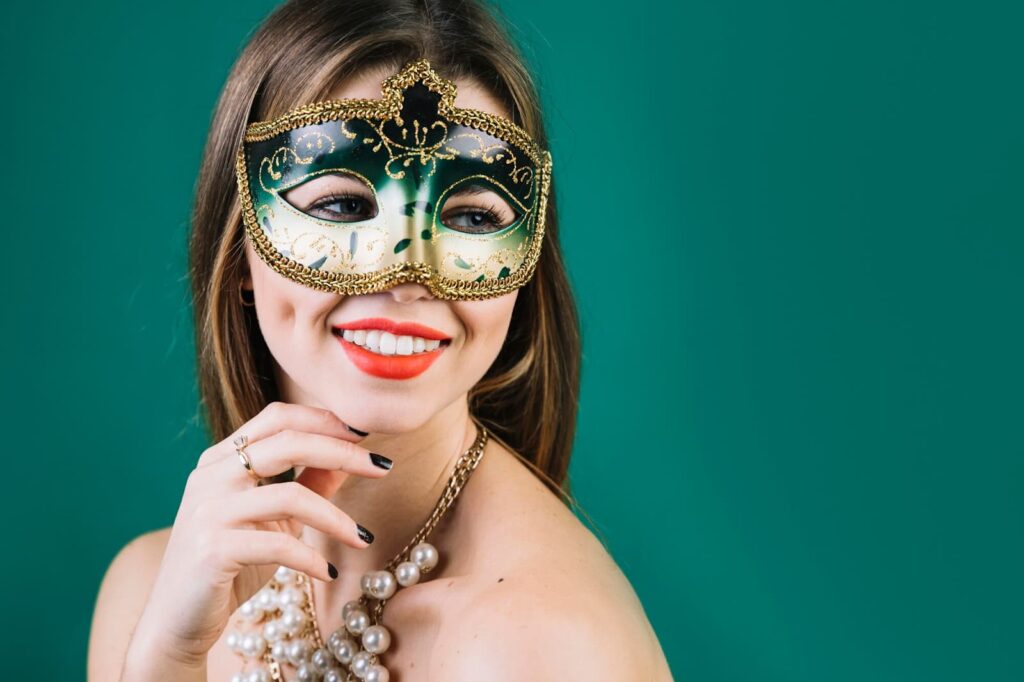Masquerade parties have a rich history dating back to the 15th century in Italy. These events are characterized by the wearing of masks, often elaborate and ornate, and continue to be popular today for various occasions. This article will explore the origins, types, and modern-day significance of masquerade parties, shedding light on their evolution and cultural impact.
Origins of Masquerade Parties
Historical Evolution
The roots of masquerade parties can be traced back to 15th century Italy, where they quickly gained popularity and spread throughout Europe. The tradition eventually made its way to the Americas through European colonists. Initially associated with the Carnival season, which spans from Epiphany (January 6) to Ash Wednesday, these gatherings provided an opportunity for revelry and anonymity.
Purpose and Significance
During the 16th century, masquerade parties served a dual purpose. They allowed individuals to engage in festivities during Carnival, a time of permitted indulgence. Additionally, the use of masks provided a means of concealing one’s identity, particularly crucial during periods of religious persecution. Wearing masks enabled people to attend religious services without fear of being identified and persecuted.
Evolution of Masquerade Parties
| Century | Location | Key Characteristics |
|---|---|---|
| 15th | Italy | Originated, elaborate masks |
| 16th | Europe | Spread, religious significance |
| 17th-18th | Americas | Colonization, integration into local culture |
| 19th-20th | Worldwide | Popularity in various social events |
Types of Masquerade Parties
Contemporary Celebrations
Today, masquerade parties are hosted for diverse reasons, ranging from commemorating special occasions like birthdays and anniversaries to simply embracing the fun and mystery they entail. These events vary widely in scale, from intimate gatherings to lavish affairs, each offering a unique experience for attendees.
Diverse Themes and Styles
Masquerade parties often incorporate specific themes, such as Venetian masquerades or Hollywood Red Carpet galas, adding an extra layer of excitement and creativity to the event. Alternatively, some gatherings allow guests the freedom to choose any mask style they prefer, fostering individual expression and diversity.
Popular Masquerade Party Themes:
- Venetian Masquerade;
- Hollywood Red Carpet;
- Fantasy and Fairytale;
- Historical Eras;
- Superheroes and Villains.

Cultural Impact and Symbolism
Artistic Expression
Masquerade parties serve as a platform for artistic expression, allowing attendees to showcase their creativity through the design and selection of masks. From intricate handcrafted pieces to elegant and mysterious styles, the masks worn at these events often reflect the wearer’s personality and imagination.
Social Interaction
These gatherings facilitate social interaction in a unique and intriguing setting, breaking down barriers and encouraging connections among attendees. The element of anonymity provided by the masks often leads to uninhibited conversations and interactions, fostering a sense of camaraderie and shared experience.
Symbolism in Masquerade Parties
| Symbol | Meaning |
|---|---|
| Masks | Anonymity, artistic expression |
| Revelry | Celebration, indulgence |
| Socializing | Connection, camaraderie |
| Tradition | Historical significance, cultural heritage |
Fashion and Costume Trends
Mask Design and Trends
The art of mask-making has evolved over the centuries, incorporating a wide array of materials, styles, and techniques. Modern masquerade masks range from traditional Venetian designs to contemporary interpretations, reflecting current fashion trends and individual preferences.
Costume Coordination
In addition to masks, attire plays a significant role in masquerade parties. Guests often coordinate their outfits with their chosen masks, creating visually stunning ensembles that contribute to the overall ambiance and spectacle of the event.
Popular Masquerade Costume Elements:
- Elaborate gowns and suits;
- Intricate accessories and jewelry;
- Dramatic makeup and hairstyles;
- Matching mask and attire themes.
Modern-Day Relevance and Popularity
Event Planning and Hosting
With the rise of event planning and themed gatherings, masquerade parties have maintained their allure and continue to be a favored choice for hosting memorable and engaging events. Their versatility allows hosts to tailor the experience to suit various occasions and preferences.
Entertainment Industry Influence
Masquerade parties have been prominently featured in popular culture, particularly within the entertainment industry. From movies and television shows to high-profile celebrity events, the mystique and glamour of masquerade parties have contributed to their enduring appeal.
Modern Applications of Masquerade Parties
| Occasion | Examples |
|---|---|
| Weddings | Masquerade-themed receptions |
| Corporate Events | Team-building activities, themed galas |
| Fundraisers | Charity balls, auction events |
| Private Functions | Exclusive soirées, milestone celebrations |
Conclusion
Masquerade parties, with their rich historical origins and evolving cultural significance, continue to captivate and inspire people across the globe. From their humble beginnings in 15th century Italy to their modern-day adaptations, these events embody creativity, celebration, and the timeless allure of mystery and intrigue. Whether hosting an intimate gathering or a grand affair, the magic of masquerade parties transcends time, offering a captivating experience for all who partake in the festivities.